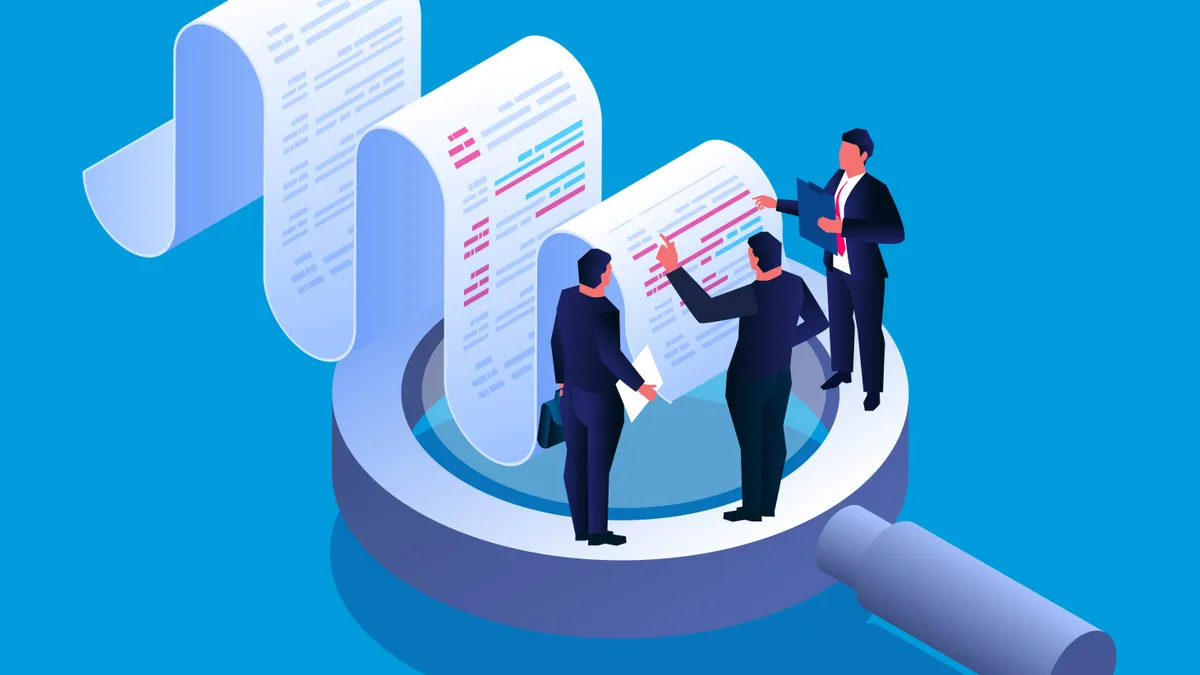Jonathan Moody is senior eDiscovery consultant at JND eDiscovery. Views are the author’s own.
The eDiscovery industry is a sought-after career path for a wide variety of reasons. It provides legal professionals a fun, challenging and rewarding field with abundant career growth opportunities and resilience during times of economic downturn.
However, getting into this field isn’t always simple and, once you’re in it, there are a number of career options available within the industry that can make determining your ideal career path a difficult choice.

Still, you can pivot down the line if you find that another path may be a better fit. Professional development is a moving target and, in an industry that evolves as quickly as the legal world with all its data challenges, you can be sure you’ll have opportunities to grow in new and exciting ways.
Here are some high-level career options in eDiscovery and the best way to get into those positions.
Document review attorney
A document review attorney spends their days reviewing and coding documents according to a variety of parameters: responsiveness, privilege, confidentiality and other issues related to the matter at hand. Their day will entail reviewing hundreds of documents, either from a law firm, a document review center or remote workspace.
Getting started
As the name implies, this role is only open to attorneys, so you’ll need to be admitted to practice. In the United States, many document review attorney positions require that applicants have attended an ABA-accredited law school.
Many companies hire per-project for document reviews and these roles can be found by researching eDiscovery document review companies or contract attorney staffing organizations. Once assigned to a few projects and you’ve showcased a high level of performance, you’ll have established a network of project managers and industry connections — meaning additional projects will likely become available to you on a more regular basis.
Benefits
- Flexibility. You can opt in or out of projects as needed. Projects could last a few days or extend for years. Many times, after-hours work is acceptable, so you can work around personal obligations to generate income.
- These jobs are also increasingly remote. Historically, these were either on-site with the end client or hosted in a review center for the review company. But post-COVID, the majority of these jobs are remote.
- Working in document review is a good way to gain exposure to eDiscovery for litigation and other matters, get your foot in the door of the industry and earn an income during career periods when you need greater flexibility.
Negatives
- Hourly pay rather than salary.
- Potential fluctuations in available work throughout the year (e.g., the holiday season tends to be slower).
Project manager
In eDiscovery, project managers work to guide matters in which data is processed, searched, analyzed, reviewed and produced by leveraging an eDiscovery platform. Project managers communicate regularly with attorneys to ensure that they can access, review and produce the data according to their needs, while leveraging the full extent of technology features that are relevant to each matter. In short, they help optimize for efficiency, facilitate steady and productive work, and ensure the needs of all members of the project team are met.
Getting started
Two main paths into project management (PM) roles exist:
The first is through an analyst role. Getting in the door, more entry-level positions are generally with a law firm or large vendor. These can be difficult roles, depending on the organization you get into. The hours can be demanding, and the learning curves can be steep. But the doors that these jobs open are often worth the early struggles.
The second path is through attorney or paralegal roles. Litigation paralegals who take an interest in eDiscovery can often work their way into analyst or project management roles at their law firms.
Benefits
- Solid pay is guaranteed for high performers in this discipline.
- PMs have the ability to delegate rote tasks while learning more about the general scope, strategy, and scale of data review projects.
- Many of these roles are available with remote working conditions.
Negatives
- Extended hours when projects heat up and deadlines loom.
- Required tracking of billable hours.
- Remaining on-call for urgent matters or time-sensitive questions during off-hours is not uncommon.
eDiscovery Attorney/Manager
An eDiscovery attorney or manager manages a team of eDiscovery project managers or other eDiscovery professionals. Responsibilities, beyond management of those teams, involve handling vendor relationships, staying on top of the latest technology, and establishing/modifying best practices and workflows for their firms or corporate legal departments.
Getting started
eDiscovery attorney roles will, naturally, require that you are an attorney or have experience as an attorney. This role may employ litigators who have a solid grasp on legal technology and related data processes or even project managers with a JD who want to pivot into a new function.
eDiscovery managers, on the other hand, tend to be project managers who have enough experience and desire to take on more responsibilities.
A solid background in document review and other legal and data-related projects will be key to starting on this path.
Benefits
- Managing a team and/or vendors is a big development opportunity and enables eDiscovery attorneys/managers to have some influence over their firm’s larger presence in the industry.
- Competitive salary.
- Control over technology, workflows, and the organizational makeup of departments. These folks are leaders with a lot of ownership and freedom to build a successful team based on best practices they’ve learned over their careers.
Negatives
- Often strict budgetary responsibilities. The pressure to accomplish more with fewer resources is a common challenge for eDiscovery managers.
eDiscovery sales
The primary job of an eDiscovery sales professional is to generate revenue for their employer. However, doing so requires knowledge of the technology, workflows, processes, and roles within the eDiscovery space. Additionally, a deep understanding of budgetary cycles and procurement processes for corporations and governments, along with cost recovery programs for law firms, proves critical.
Getting started
Gaining experience in sales and its associated skills is the biggest first step to entering this path. Strong written and verbal communication skills, the ability to build and maintain relationships with diverse groups of people, and effective time management skills are a few examples of what goes into becoming a strong contender for a sales position, whether your experience begins in the legal industry or outside of it.
Conversely, pivoting from other eDiscovery roles into sales is often a clear transition. It’s not uncommon for PMs, support staff, attorneys, and many other legal professionals to make this shift in their careers.
Benefits
- Flexibility and novelty. There are many different types of sales roles out there, from legal technology companies to service providers to staffing agencies. Those looking for a new challenge can certainly find it in sales.
- Travel is often a component of these roles, providing opportunities to see new places and meet new people.
- Potential for high income. Excellent salespeople can earn strong salaries, bonuses, and commissions.
Negatives
- Sales quotas can create intense working environments.
- Varying demand throughout the year as eDiscovery is a B2B sales space and target companies and firms will spend differently at different points in the year.
- If you’re newer to sales, even if you’re well-versed in the legal world, it can be a challenge to adjust to this type of role.
The eDiscovery industry is a tight-knit industry that feels small but offers abundant economic and professional opportunities to those willing to put in the work.
Building strong relationships will take you far and finding mentors to help you navigate your career will pay off in the long run. Opportunities are endless for networking and mentoring. ACEDS, Women in eDiscovery, industry conferences and vast local organizations or user groups are available for networking and professional development.
At conferences, there are mentoring, and scholarship programs, often at no cost. Outside of conferences or in-person opportunities, if you’re looking to break into the industry or foster new connections, reach out to industry professionals or who have recently posted that they’re hiring for a target role on LinkedIn.


















